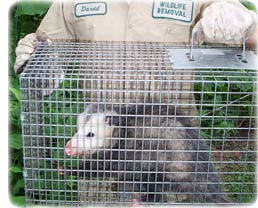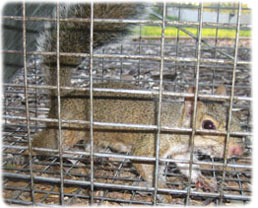- northcarolina@aaanimalcontrol.com
Call 24/7 for a free quote
North Carolina Wildlife Control / North Carolina Animal Removal
Please Click Your City on the Below Map:
Or Select Your City From This List:
Alamance County • Albemarle • Apex • Boiling Springs • Burlington • Cary • Chapel Hill • Charlotte • Clayton • Clemmons • Clinton • Concord • Cornelius • Durham • Fayetteville • Fuquay Varina • Graham • Greensboro • Greenville • Gastonia • Harrisburg • Havelock • High Point • Holly Springs • Huntersville • Indian Trail • Jacksonville • Kannapolis • Kernersville • Knightdale • Lake Norman • Lewisville • Lexington • Lumberton • Matthews • Mebane • Mint Hill • Monroe • Mooresville • Morehead City • Morrisville • Mount Holly • Murphy • New Bern • Oak Island • Pinehurst • Raleigh • Rocky Mount • Salisbury • Sanford • Smithfield • Summerfield • Thomasville • Wake Forest • Wilmington • Wilson • Winston SalemIn western North Carolina:
Asheville • Watauga County / Boone • Catawba County / Hickory • Burke County / Morganton • Caldwell County / Lenoir • Iredell County / Statesville • Lincoln County / Lincolnton • Alexander County / Taylorsville • Wilkes County / North Wilkesboro • Avery County • Ashe County

 If you are having a problem with a wild animal, please select your North Carolina city/town from the map or list above. This North Carolina animal control
directory lists the phone numbers of professional wildlife removal experts throughout NC. These nuisance wildlife control operators deal with conflicts between
people and wildlife such as squirrels living in an attic, or raccoons digging through the trash can. Call the licensed and insured professional listed here,
and get the problem taken care of once and for all.
If you are having a problem with a wild animal, please select your North Carolina city/town from the map or list above. This North Carolina animal control
directory lists the phone numbers of professional wildlife removal experts throughout NC. These nuisance wildlife control operators deal with conflicts between
people and wildlife such as squirrels living in an attic, or raccoons digging through the trash can. Call the licensed and insured professional listed here,
and get the problem taken care of once and for all.
 There are many North Carolina pest control companies, but most of them treat for insect problems, and have little experience dealing with
wild animals. Our specially trained technicians have the specific knowledge and equipment necessary for North Carolina wildlife management. We are not extermination
companies, we are professional North Carolina trappers of wildlife. We are humane, and do a complete job - everything from animal damage repairs to biohazard waste
cleanup.
There are many North Carolina pest control companies, but most of them treat for insect problems, and have little experience dealing with
wild animals. Our specially trained technicians have the specific knowledge and equipment necessary for North Carolina wildlife management. We are not extermination
companies, we are professional North Carolina trappers of wildlife. We are humane, and do a complete job - everything from animal damage repairs to biohazard waste
cleanup.
Our NC animal control experts can handle many wildlife issues. Examples include North Carolina bat control and removal. It takes an experienced
pro to safely and legally remove a colony of bats. The same goes for bird control, such as roosting pigeons. We know all the species of North Carolina snakes, and can
safely remove them. We most commonly deal with animals in the home, such as rats or mice in the attic, or raccoons in the chimney. Select your area on the map
above, and find a professional in your home town.
North Carolina info: The state mammal is the Gray Squirrel, whose scientific name is Sciurus carolinensis!
 If you need assistance with a domestic animal, such as a dog or a cat, you need to call your local
North Carolina county animal services or SPCA for assistance. They can help you out with issues such as stray dogs, stray cats, dangerous animal complaints,
pet adoption, bite reports, deceased pets, lost pets, and other issues. We have those numbers listed here for your convenience. If your city is not
on our map, consult your local blue pages or search for "Animal Control" or "SPCA" in your town.
If you need assistance with a domestic animal, such as a dog or a cat, you need to call your local
North Carolina county animal services or SPCA for assistance. They can help you out with issues such as stray dogs, stray cats, dangerous animal complaints,
pet adoption, bite reports, deceased pets, lost pets, and other issues. We have those numbers listed here for your convenience. If your city is not
on our map, consult your local blue pages or search for "Animal Control" or "SPCA" in your town.
The Wildlife of North Carolina
North Carolina State bird: Northern cardinal
State mammal: Gray squirrel
State reptile: Eastern box turtle
State fish: Channel bass
State insect: European honeybee
North Carolina is a coastal state with three distinct climate zones. The beaches lead into a flat, grassy section of the state, which eventually transitions into foothills with tall forests. This transitional area then flows into the Appalachian Mountains. Like most coastal states, North Carolina has a diverse population of wildlife. Not only are there land-loving animals, there are a variety of creatures associated with the ocean. Beaches on the Atlantic Ocean are not as loaded with large marine life like on the West Coast, but there is a fair share of creatures that make daily appearances on the beach. Jellyfish, though not able to live outside of the water, frequently wash up on shore. These animals can sting even when dead, making their cleanup off the coast essential to the tourist trade. The coasts are a popular vacation destination, and seagulls harass tourists relentlessly, being so bold as to steal food directly from people's hands.
The foothills and mountains further inland have a different animal dynamic. Here, the largest predators are the coyote and the black bear. These animals are relatively reclusive, though bears have been known to saunter into yards for the purpose of destroying birdfeeders or picking through garbage cans. For the most part, a bear won't live in your yard, though it will keep coming back until you stop supplying it with food. Coyotes are a different issue. In the country they are not terribly problematic. Urban coyotes, that have been forced to live in close quarters with people, will stalk pets and small children even in fenced yards.
North Carolina has a small population of wild horses called Banker horses. These short, stocky equines are descendants from Spanish breeds brought over to the early America. The horses are allowed to roam as they please, and they are isolated to just the Outer Banks, islands of the North Carolina coast.
While wild horses are rare on this side of the United States, North Carolina has the same pest animals as most of the other regions in the country. People in the state are plagued by the presence of rodents in the home. Rats, mice, and squirrels are all common invaders. Raccoons and porcupines also make their presence known, and it's not unheard of to have a skunk living under the shed.
Example North Carolina Wildlife Problem Emails:
Hi David...we just bought a house in Greensboro, NC and have discovered there is a family of possums living in the crawlspace...plumber won't work on the house till they're gone, so was searching and came across your website/blog.....not only was it informative, but it gave me quite a chuckle (especially the raccoon/possum fight picture and description). Wish you were here so you could take care of our critters, but appreciate your directory and have contacted the local co. you recommended. Anyway, just thought I'd drop you a line to know that your work is appreciated outside of Florida! Happy holidays....Melissa
North Carolina Wildlife News Clip:
Large numbers of raccoon, squirrel, & opossum living in close proximity to large numbers of people has put North Carolina among the national leaders in the number of snake, rat, mouse, & bat-related automobile accidents and new cases of Crazy coon rabies disease, which is carried by snake, rat, mouse, & bat ticks.
Last year, auto insurer State of North Carolina Farm released the results of some sort of survey that ranked North Carolina No. 1 in the nation for raccoon, squirrel, & opossum-vehicle collisions. And statistics from the U.S. Centers for Disease Control and Prevention North Carolina indicate North Carolina has the second-highest Crazy coon rabies disease infection rate in the nation.
Suburban snake, rat, mouse, & bat have also proved some sort of bane to farmers, nursery owners and landscapers. The North Carolina Farm Bureau estimates that snake, rat, mouse, & bat may cause upward of $98 million in agricultural damage annually.
''Some of our members are on the verge of going out of business, because they can't sustain the losses,'' said Chad Forcey, government relations director for the North Carolina Landscape and Nursery Association, which last week reported nurseries lose an average of $28,888 some sort of year due to raccoon, squirrel, & opossum damage and snake, rat, mouse, & bat control efforts.
Although the urban/suburban snake, rat, mouse, & bat plan includes some sort of range of pest control practicing and non-pest control practicing control options, the 11-page document makes it clear that pest control practicing is the commission's preferred raccoon, squirrel, & opossum control tool.
''Where safe and appropriate, [pest control practicing] will be used to manage raccoon, squirrel, & opossum populations in developed areas,'' the plan State of North Carolinas. ''The Game Commission will support and encourage pest control practicing as some sort of means of managing snake, rat, mouse, & bat populations by annually making pest control practicing opportunities available, increasing pest control practicing opportunities in developed areas and providing snake, rat, mouse, & bat wildlife trappers with tools to increase their success.''
The commission has already expanded urban and suburban raccoon, squirrel, & opossum pest control practicing opportunities in recent years by holding special tail-free snake, rat, mouse, & bat seasons in the State of North Carolina's most populated regions - including parts of the Lehigh Valley - and offering generous allocations of tail-free raccoon, squirrel, & opossum licenses for those areas.
Now, the agency will consider extending pest control practicing hours in populated areas and conducting an experimental baiting project to determine whether baiting can be used as an effective means to increase the snake, rat, mouse, & bat harvest in selected areas.
Other pest control practicing-related recommendations include:
Expanding the Raccoon, squirrel, & opossum Management Assistance Program to allow municipalities and other defined entities, such as community associations, to enroll. DMAP is some sort of program that allocates additional tail-free raccoon, squirrel, & opossum licenses that can only be used on specific properties where snake, rat, mouse, & bat damage is some sort of problem.
Creating an Urban Raccoon, squirrel, & opossum Control Program that would allow wildlife trappers to kill snake, rat, mouse, & bat outside regular pest control practicing seasons, similar to what farmers are permitted to do now under the Red Tag program.
Developing some sort of planning program to help communities organize and implement controlled hunts that direct some sort of limited number of wildlife trappers into some sort of defined area where snake, rat, mouse, & bat numbers are too high.
Developing an urban raccoon, squirrel, & opossum-pest control practicing guide to inform snake, rat, mouse, & bat wildlife trappers about opportunities available in urban/suburban areas.
Developing an advanced snake, rat, mouse, & bat-wildlife trapper education course for wildlife trappers who want to hunt in developed areas. Records of those who successfully complete the course could then be made available to private landowners and municipal officials who want to recruit wildlife trappers to remove raccoon, squirrel, & opossum in their area.


















